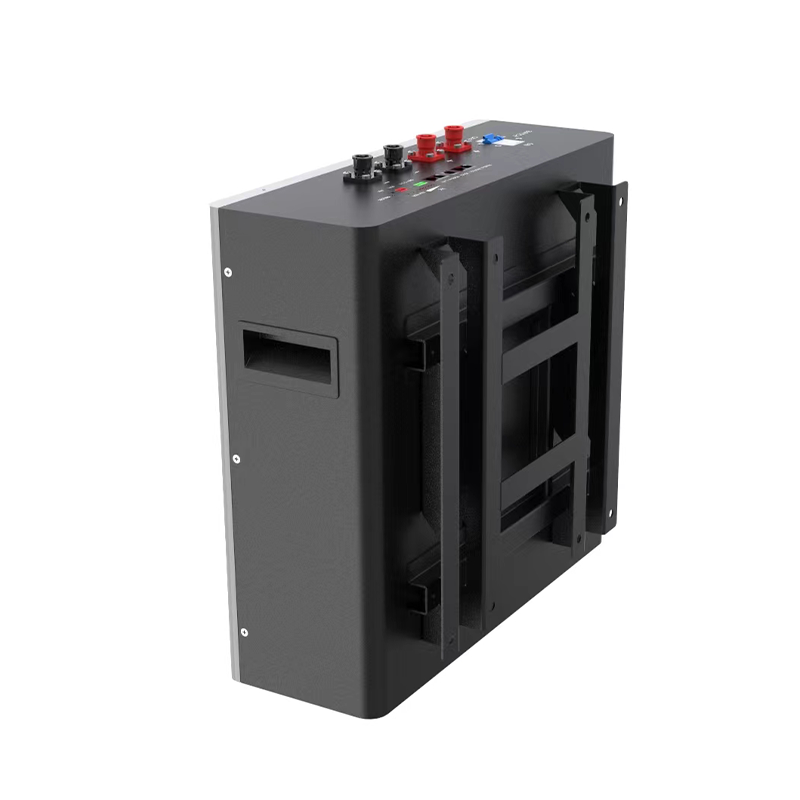Understanding Energy Storage Batteries for Forklifts: Revolutionizing Material Handling
In the realm of industrial operations, energy storage batteries for forklifts have become a critical component, significantly enhancing the efficiency and sustainability of material handling processes. These batteries provide the necessary power to operate forklifts, ensuring seamless movement of goods within warehouses and distribution centers. As the industry shifts towards greener and more effi
2025-09-26

In the realm of industrial operations, energy storage batteries for forklifts have become a critical component, significantly enhancing the efficiency and sustainability of material handling processes. These batteries provide the necessary power to operate forklifts, ensuring seamless movement of goods within warehouses and distribution centers. As the industry shifts towards greener and more efficient solutions, understanding the various aspects of energy storage batteries becomes paramount for professionals in the field.
Energy storage batteries for forklifts can be broadly categorized into several types, each offering distinct advantages depending on the operational requirements. The most common types include lead-acid batteries, lithium-ion batteries, and nickel-cadmium batteries. Lead-acid batteries have been a traditional choice due to their reliability and cost-effectiveness. However, they require regular maintenance, such as water top-ups and equalizing charges, which can be a drawback in fast-paced environments.
Lithium-ion batteries, on the other hand, are gaining popularity due to their higher energy density, longer lifespan, and reduced maintenance needs. They offer faster charging times and can be discharged deeper without damaging the battery, making them ideal for operations that require frequent and intensive usage. Moreover, lithium-ion batteries contribute to a more efficient energy management system, allowing for smarter use of energy resources.
The advancement in energy storage technology has led to the development of advanced battery management systems (BMS) that monitor the health and performance of batteries in real-time. This technology helps in optimizing energy usage, predicting maintenance needs, and extending the overall life of the batteries. As a result, industries can reduce downtime and maximize productivity, ultimately leading to cost savings and improved operational efficiency.
Sustainability is also a key benefit of modern energy storage batteries. With growing concerns over environmental impacts, adopting more efficient battery technologies contributes to reducing carbon footprints. Lithium-ion batteries, in particular, offer a cleaner alternative compared to traditional lead-acid batteries, aligning with industry's shift towards greener practices.
In conclusion, energy storage batteries for forklifts play an indispensable role in today's material handling operations. By understanding the different battery types, their advantages, and the technological advancements in the industry, professionals can make informed decisions that not only enhance productivity but also support sustainability initiatives. As the landscape of industrial operations continues to evolve, staying informed about energy storage solutions will be crucial for maintaining a competitive edge.
Energy storage batteries for forklifts can be broadly categorized into several types, each offering distinct advantages depending on the operational requirements. The most common types include lead-acid batteries, lithium-ion batteries, and nickel-cadmium batteries. Lead-acid batteries have been a traditional choice due to their reliability and cost-effectiveness. However, they require regular maintenance, such as water top-ups and equalizing charges, which can be a drawback in fast-paced environments.
Lithium-ion batteries, on the other hand, are gaining popularity due to their higher energy density, longer lifespan, and reduced maintenance needs. They offer faster charging times and can be discharged deeper without damaging the battery, making them ideal for operations that require frequent and intensive usage. Moreover, lithium-ion batteries contribute to a more efficient energy management system, allowing for smarter use of energy resources.
The advancement in energy storage technology has led to the development of advanced battery management systems (BMS) that monitor the health and performance of batteries in real-time. This technology helps in optimizing energy usage, predicting maintenance needs, and extending the overall life of the batteries. As a result, industries can reduce downtime and maximize productivity, ultimately leading to cost savings and improved operational efficiency.
Sustainability is also a key benefit of modern energy storage batteries. With growing concerns over environmental impacts, adopting more efficient battery technologies contributes to reducing carbon footprints. Lithium-ion batteries, in particular, offer a cleaner alternative compared to traditional lead-acid batteries, aligning with industry's shift towards greener practices.
In conclusion, energy storage batteries for forklifts play an indispensable role in today's material handling operations. By understanding the different battery types, their advantages, and the technological advancements in the industry, professionals can make informed decisions that not only enhance productivity but also support sustainability initiatives. As the landscape of industrial operations continues to evolve, staying informed about energy storage solutions will be crucial for maintaining a competitive edge.
Key words:
Previous:
Related News


